
Radar | Oct 02,2023
In the compound of Tikur Anbessa (Black Lion) Hospital lies a poorly lit children's cancer ward. A dim hallway leads from the gloomy waiting area to a unit where dozens of ailing children and infants are treated. It is not a sight for the faint-hearted.
The air in the dreary pediatric ward is pierced with the intermittent cries of its young patients. Clad in their white gowns, medical staff scrambled to attend to the children's needs as best they could. Adults, most of the parents of the sick, walk their kids around the room, intravenous lines attached and all. Masresha Alemu, living through the darkest time of his life, was there last week taking care of his seven-year-old son, Abraraw.
In a secluded room away from the hall, Masresha sat beside his son while he lay asleep, curled up in a ball on his bed. Abraraw battles cancer.
The distraught father held two medications he had been instructed to buy by physicians at the largest referral hospital in the country. He paid 440 Br, a bill he could hardly afford.
Masresha is from Woliso, a town in the Oromia Regional State, 115Km southwest of Addis Abeba. He brought his son to the capital after doctors in a local health centre gave him a referral, unable to treat the disease his son suffers from. He was hopeful that the Black Lion would be an affordable place for treatment.
Indeed, many like him make their way to the capital each day to seek medical help in its wards. But little did Masresha know he would have to spend thousands of Birr at the public health centre since arriving two weeks ago.
“I assumed a government hospital would cost me less,” he said. “I'm selling my crops.”
Masresha has spent over 7,000 Br on two prescription medications thus far. He has even had to buy the surgical gloves the physicians use when conducting their tests and checkups on Abraraw. Although medications are supposed to be available from the Hospital itself, patients are often told to buy from private pharmacies as stocks are depleted.
Black Lion, a public hospital with 1,000 beds and over 3,400 employees, is one of the oldest hospitals in the country. Since it opened its doors in 1972, people from all corners of the country have been flocking to it for treatment. It treats an average of 20,000 patients each day. But it is not alone in facing a crippling shortage in medications and medical supplies.
Neither is the lack of pharmaceuticals a new challenge for the Ethiopian healthcare system. It has always been lurking, but worsening economic conditions and global supply chain disruptions have exacerbated the problems lately. A shortage of pain medications and substances used to treat chronic diseases has gripped the market in recent months. Public health centres like Black Lion would ordinarily provide relief in times like these. As their stocks have run dry before the end of the financial year, they have become part of the problem – or nightmare in the case of Masresha and Abraraw.
The Ethiopian Pharmaceuticals Supply Agency is in charge of importing and supplying medications to public health institutions. It caters to the needs of over 5,000 centres across the country, spending billions of Birr each year. Its expenditures have blotted tremendously year from year. Three years ago, its annual import bill clocked in at around 10 billion Br, seven billion Birr less than it spent last year. It reached 10.5 billion Br over the first half of this year.
There are few smiles to be seen in the queue outside the state-owned Kenema Pharmacy's branch in Arat Kilo. The man on the left can be seen holding his head. Whether in agony over an illness or rising costs for medications is anyone's guess.
In the six months beginning September 2021, Ethiopia imported 29 billion Br worth of medications.
Solomon Nigussie, deputy head of the Agency, says the Agency is aware of the shortages and the escalating prices. He blames the global logistics disruption and increased shipping prices for the problem. The onset of the COVID-19 pandemic has caused many setbacks, from the shortage of basic inputs used to manufacture medication to dwindled production and logistics constraints.
This is readily visible in the market. A single pair of medical gloves cost a little over 40 Br, up from 12 Br two years ago. When the pandemic hit, it caused a huge spike in global demand for rubber gloves. It almost doubled in 2020 from 300 billion pieces a year before. Global manufacturers could not keep pace, only producing around 370 billion pieces. Neither were efforts to boost the production capacity of much help, leaving the world's medical centres short 200 billion gloves.
Wider economic issues have also had an impact on Ethiopia. The depreciation of the Birr against the major foreign currencies has resulted in significant price increases for domestic users. The Agency would source up to 20pc of medications and supplies from local manufacturers in the past. It recently ceased to, seeing prices for imported medicines rise by a quarter due to the declining purchasing power of the Birr.
Jaw-dropping spikes in shipping costs have not spared the healthcare sector, either.
Shipping a 20ft container has quadrupled to nearly 13,000 dollars over the past two years. The development bodes ill for such an import-dependent country as Ethiopia, with an import bill over the first eight months of the financial year surpassing 10 billion dollars. All this means that patients have limited access to life-saving medications. When they find what doctors prescribe, they are shocked by exorbitant prices.
The price of insulin, a critical medication for type-1 diabetic patients, perhaps illustrates the depth of the crisis. A vial of a brand of insulin imported from Denmark, enough to last a patient a mere few weeks, goes for 310 Br, double the price from a year ago. According to the 2017 estimate by the International Diabetes Federation (IDF), 2.57 million adult Ethiopians live with diabetes. Only 76pc are aware and receive treatment.
Globally, insulin prices have been particularly on the high side. Industry experts believe a few players dominate the market. Three manufacturers control 96pc of the world’s supply. The World Health Organisation (WHO) surveyed 24 low- and middle-income countries and found out that a month's supply of insulin costs more than a fifth of workers' average pay. The issue also stems from poor fiscal planning, which is the source of the artificial shortage of certain drugs.
Andualem Deneke (MD), head of the Addis Abeba Health Science College under Black Lion Hospital, concurs the money the Hospital owes is a trouble of its own. Although the budget apportioned for the Black Lion Hospital has never sufficed its needs, having to pay back accumulated credit to the Agency has further undermined its ability to make medications available for thousands of patients.
The teaching hospital was initially provided with 88 million Br this year, a significant portion of which was spent on repaying its debts. The balance has already been spent on medications, according to Andualem. The government pledged an additional 100 million Br to it last week.
"The budget and the expenditure have never matched," Andualem told Fortune.
Issues with budget constraints are no different in the second-largest public hospital: St. Paul's Hospital Millennium Medical College.
Zebiba Nasir is among the Hospital's 2,000 inpatients receiving treatment for breast cancer. For the 35-year-old mother of four, the price of medication, especially morphine, seems out of reach. Unable to find the pain medication at the hospital, she paid 1,500 Br for a single dose.
"I came all this way thinking it wouldn't cost this much at a government hospital," she said.
According to the Hospital's annual plan, 240 million Br was requested to procure medications. However, only one-fourth of this has been apportioned, all of which has already been exhausted. Half of it was spent on repaying accumulated debt. Health centres collectively owe the Agency one billion Birr.
St. Paul's Hospital stocks about 1,200 types of medications. An additional budget of 40 million Br was secured two weeks ago, according to Debela Gemeda, head of the pharmaceutical department at the Hospital. Debela believes the solution lies in addressing the budgetary issues and overhauling the procurement system to allow the Hospital to conduct open bids. Another short-term solution he sees is sourcing medicines through donations.
"Donations are in progress now," he said.
Budgetary constraints are the primary reasons hospitals fail to buy medications despite their dwindling stocks.
Solomon, the deputy head, says it has gotten to a point where even the Agency cannot sustain it anymore.
Hospitals and health centres under the purview of the Addis Abeba City Administration are not faring much better. These institutions received 239 million Br worth of medication over the last seven months, according to Seife Demissie, pharmaceuticals supply director at the Addis Abeba Health Bureau. Among them are Tirunesh Beijing, Gandhi, Zewditu, Menelik II and Yekatit 12 hospitals. The municipality also supervises 102 health centres spread across the capital.
Budgetary issues are present here as well. The yearly growth in budget allocation is 6.5pc, though officials say the Bureau is working to double that in the face of price hikes and supply disruptions. Driven by COVID-19 and the subsequent shipping disruptions, the price of medications is increasing by as much as 400pc.
Private importers, too, are feeling the burn.
Getachew Teklehaimanot is the general manager of Sheger Pharmacy in the Lemi-Kura District. He has not stocked any morphine for the past two years. Prices for certain brands of insulin at Sheger have also skyrocketed by as much as 150pc. The pharmacy imported 5.2 million Br worth of pharmaceuticals last year. It has imported two million Br worth of medicines in the last seven months.
The General Manager observed import volumes falling as market prices rise.
For medications such as insulin, which entail special import protocols, part of the problem lies in the small pool of suppliers with permits to ship the medication into the country. As insulin needs to be kept in cold storage, providing refrigerators and backup power sources is a headache for importers.
"There aren't many importers who meet these requirements," says an importer who requested anonymity.
There are about 200 importers and wholesalers in the pharmaceutical supply chain. Although they are at the top of the central bank's import priority list, importers struggle to get their hands on foreign currency, contributing to the shortages. The forex issues are also a pressing matter for domestic manufacturers.
The Ethiopian Pharmaceuticals Manufacturing S.C., a public enterprise, has its executives voice their concerns with the unavailability of forex. Importing basic ingredients and packaging materials has become increasingly challenging over the past three years. The company receives three million dollars annually to import inputs, but it needs five times more to produce at full capacity. Consequently, it is using a quarter of its potential, forced to cut down by a third the 150 varieties of tablets, capsules and syrups it used to produce.
The hurdles have impacted its profit margins.
Three years ago, the public enterprise recorded around 800 million Br revenues. It has fallen by half, says Tesfaye Taye, general manager of the company.
Abebaw Fekadu (PhD) is a professor of psychiatry at Addis Abeba University. He is also a visiting professor at King's College London and the University of Sussex in the UK with training in psychopharmacology. He observes the shortage and expensiveness of medicines often forces patients to miss doses or stop taking medication completely. This, he says, can cause a new problem all on its own, especially with infectious and germ-caused diseases.
Missing doses or cutting them out can build drug resistance in the pathogens. The expert warns that drug resistance is already at dangerous levels.
It is a stark reminder of the economic quagmire the country finds itself when a lack of forex keeps the bedridden and the ill from the medications and care they so desperately need. Unlike the import of cooking oil, vehicles or clothing, medicines are a matter of life and death for citizens beset with seemingly endless problems and burdens. It is a situation that desperately needs attention and solutions.
Nonetheless, attributing supply chain disruptions or a lack of forex to the situation will mean little to Masresha and his young son. They are still in that dimly lit ward, hoping the trial will pass and brighter days are ahead.
PUBLISHED ON
Mar 26,2022 [ VOL
22 , NO
1143]

Radar | Oct 02,2023

Fortune News | May 15,2021
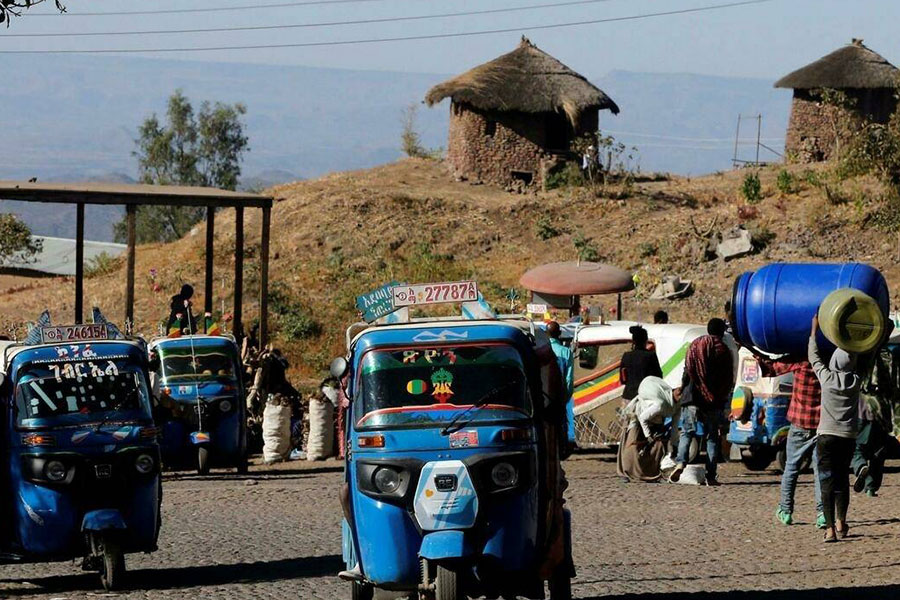
Agenda | Nov 06,2021

Radar | Jul 13,2024
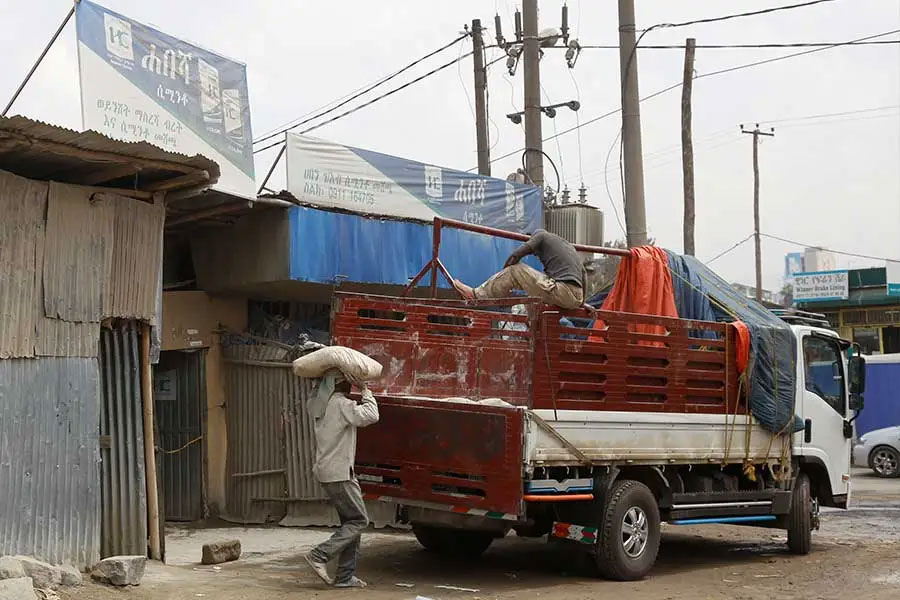
Fortune News | Aug 27,2022

Commentaries | Aug 06,2022
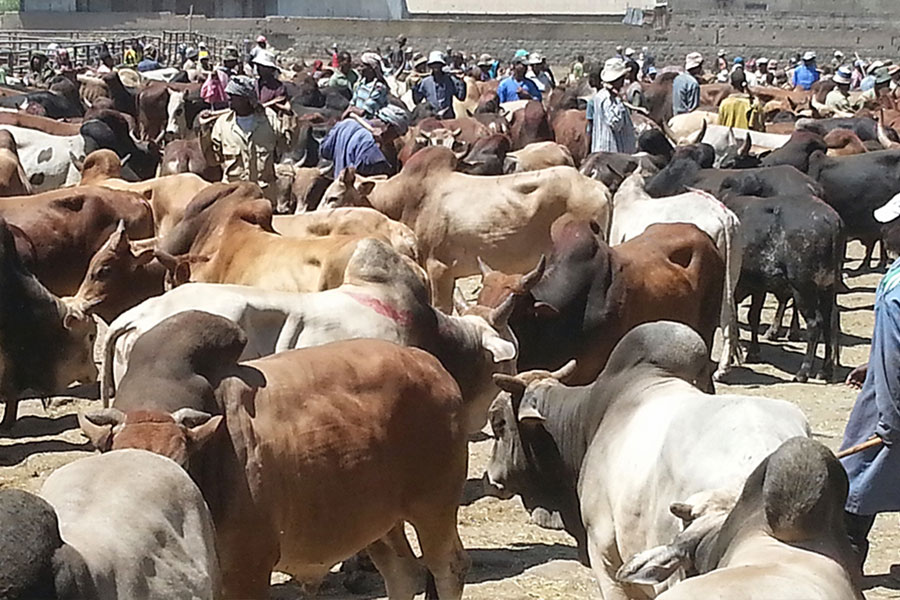
Fortune News | Jan 29,2022
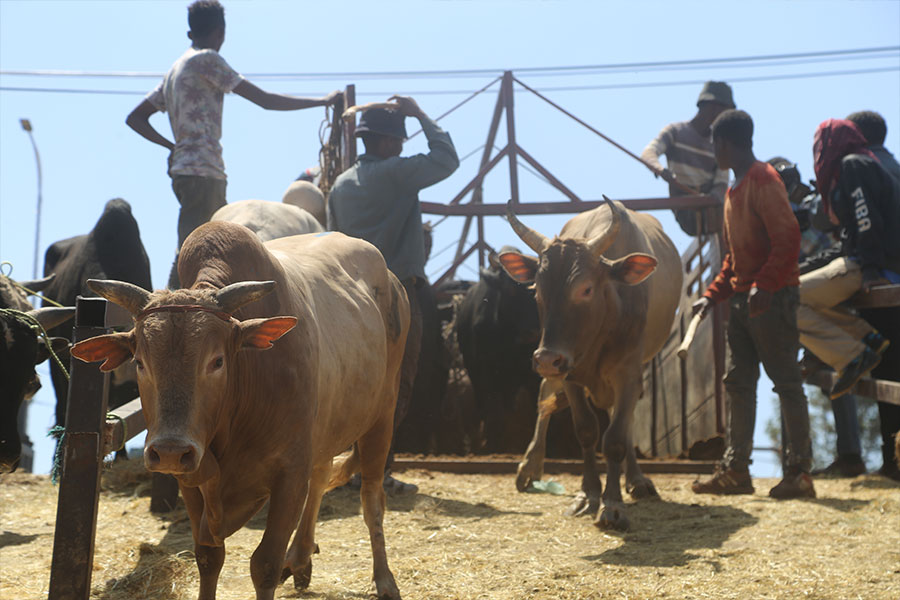
Agenda | Apr 15,2023
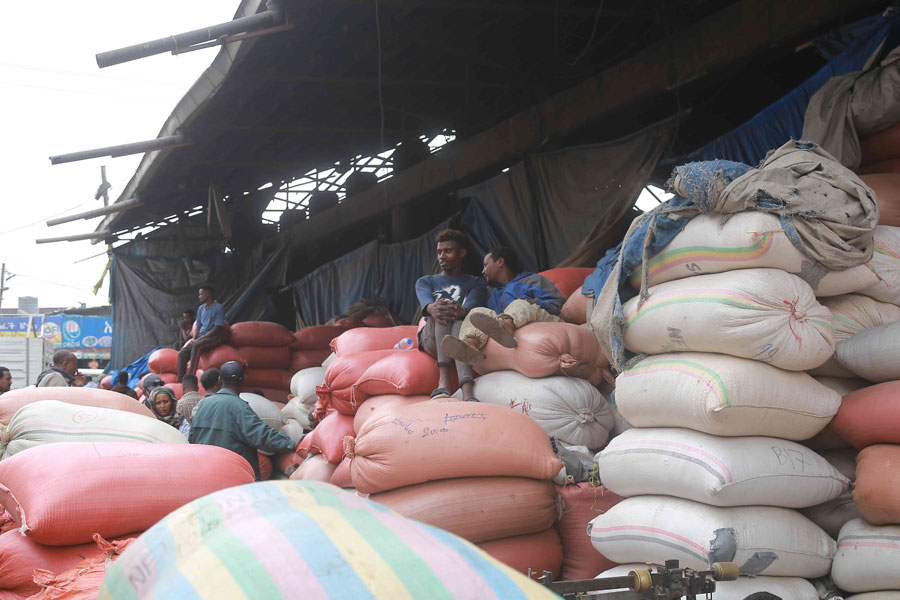
Agenda | Mar 04,2023

Commentaries | Jun 22,2024

Jul 13 , 2024 . By AKSAH ITALO
Investors who rely on tractors, trucks, and field vehicles for commuting, transportin...

Jul 13 , 2024 . By MUNIR SHEMSU
The cracks in Ethiopia's higher education system were laid bare during a synthesis re...

Jul 13 , 2024 . By AKSAH ITALO
Construction authorities have unveiled a price adjustment implementation manual for s...

Jul 13 , 2024
The banking industry is experiencing a transformative period under the oversight of N...

Jul 20 , 2024
In a volatile economic environment, sudden policy reversals leave businesses reeling...

Jul 13 , 2024
Policymakers are walking a tightrope, struggling to generate growth and create millio...

Jul 7 , 2024
The federal budget has crossed a symbolic threshold, approaching the one trillion Bir...

Jun 29 , 2024
In a spirited bid for autonomy, the National Bank of Ethiopia (NBE), under its younge...